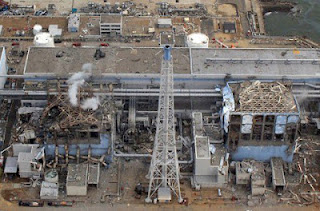Japan nuke safety expert sees no viable alternative to nuclear power
Singapore (Platts)
A year after Fukushima, a majority of the people in Japan have turned
against the continued use of nuclear energy and there are no strongly
pro-nuclear political voices, but zero nuclear power generation is not an
option, a Japanese nuclear expert said Thursday.
Renewables such as wind and solar energy are far costlier than nuclear power, and the resource-starved country cannot increase its reliance on fossil fuels, Shojiro Matsuura, chairman of Japan's Nuclear Safety Research Association, said in Singapore.
"Japanese people should choose some fraction of nuclear energy for the future," he added, but stayed away from being more specific.
The Japan Atomic Energy Commission is currently deliberating a new policy for future utilization of nuclear energy and is expected to come up with a strategy by June or July, Matsuura said.
Renewables such as wind and solar energy are far costlier than nuclear power, and the resource-starved country cannot increase its reliance on fossil fuels, Shojiro Matsuura, chairman of Japan's Nuclear Safety Research Association, said in Singapore.
"Japanese people should choose some fraction of nuclear energy for the future," he added, but stayed away from being more specific.
The Japan Atomic Energy Commission is currently deliberating a new policy for future utilization of nuclear energy and is expected to come up with a strategy by June or July, Matsuura said.
 | ||
| Fukushima Dai chi nuclear disaster | ||
Asked if Japan could live without nuclear energy, Matsuura said the only way it could do so would be to cut back on its industrial activities and reduce its population.
Nuclear power cost about Yen 6/kWh (7.42 cents/kWh ) before the Fukushima disaster, and that figure has now doubled, after factoring in the costs of the accident. But that is still lower than the estimated Yen 14/kWh cost of wind energy and Yen 40/kWh for solar energy, Matsuura pointed out.
Given the cost constraints, Japan has started looking at high-temperature gas-cooled nuclear reactors that use helium and are considered safer than light water reactors, the kind the country currently has, and has begun testing the technology at a small, 30 MW plant.
Technological advances are increasing the energy efficiency and decreasing the cost of the gas-cooled reactors, Matsuura said.
Public opinion remains a major hurdle. Recent media polls showed 60% of Japanese were opposed to nuclear power generation, while 30% favored it and the rest were neutral, Matsuura said. The business community in general supports nuclear energy.
Local media is split down the middle, with a couple of major newspapers taking a stand against nuclear power, a few being in favor, and a prominent economic and industrial newspaper being "somewhere in the middle," Matsuura added.
While there was a growing "irrational nuclear phobia" in Japan -- young mothers, for instance, want "no chance of any possibility to have such a radioactive accident" -- the opinions and concerns of the anti-nuclear lobby were valid, he said.
Experts from the US who investigated the Fukushima incident had pinpointed "insufficiencies and inconsistencies in Japanese methods and systems of regulation and m anagement," Matsuura said, adding that he mostly accepted the comment. It was not easy to change Japanese management styles, but a gradual improvement had begun, he said. All factors considered, it would take some 40 years to completely "rehabilitate" Japan's nuclear power sector, he added.














0 nhận xét:
Đăng nhận xét